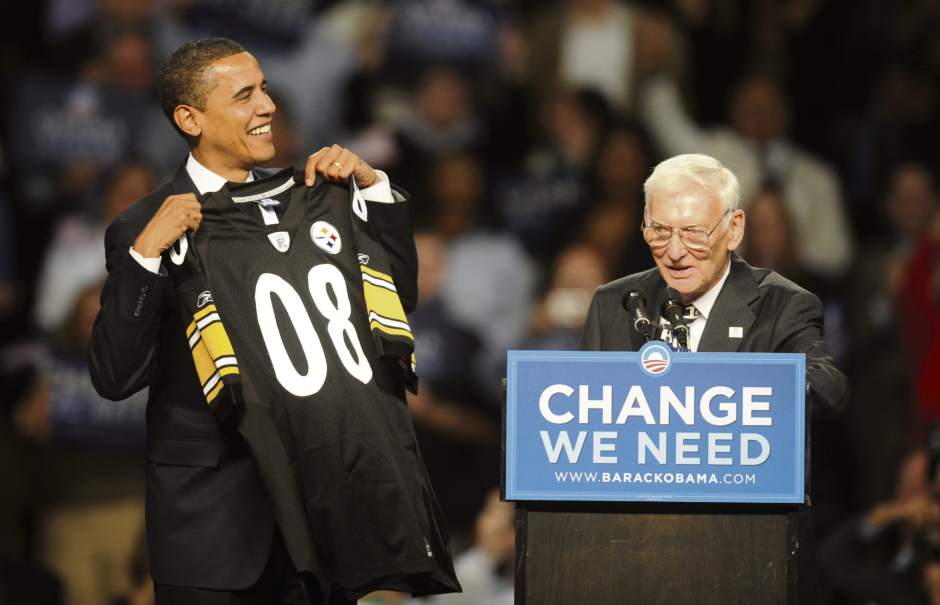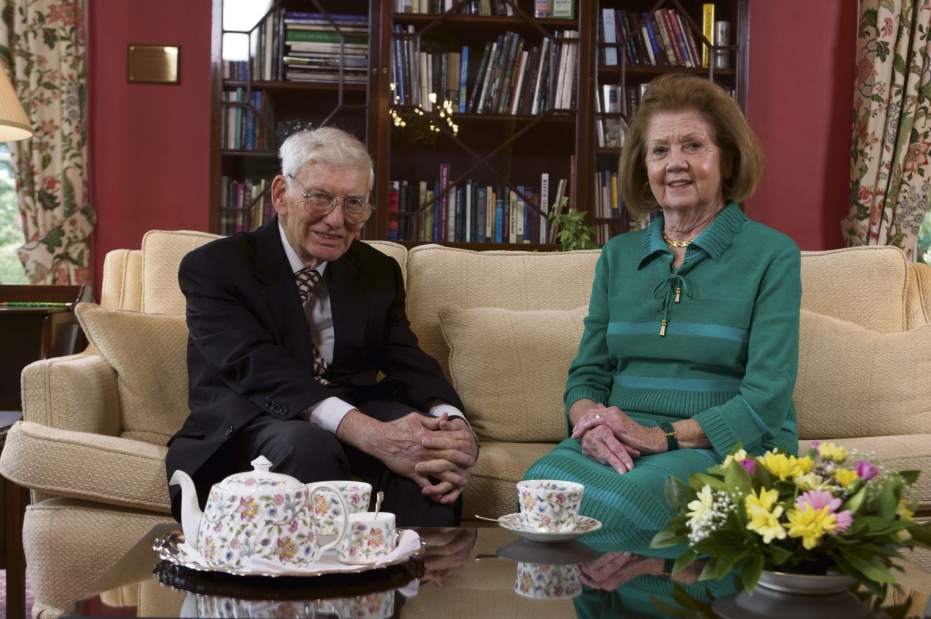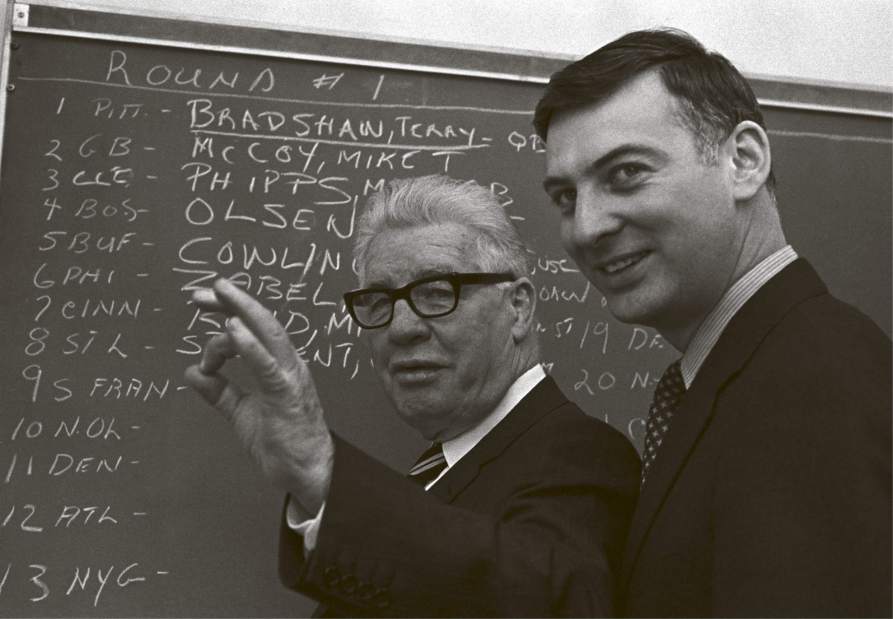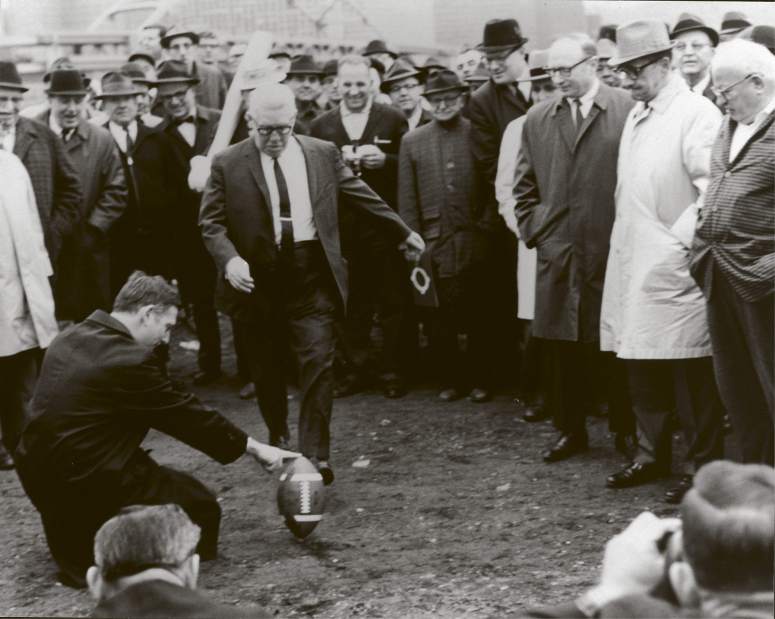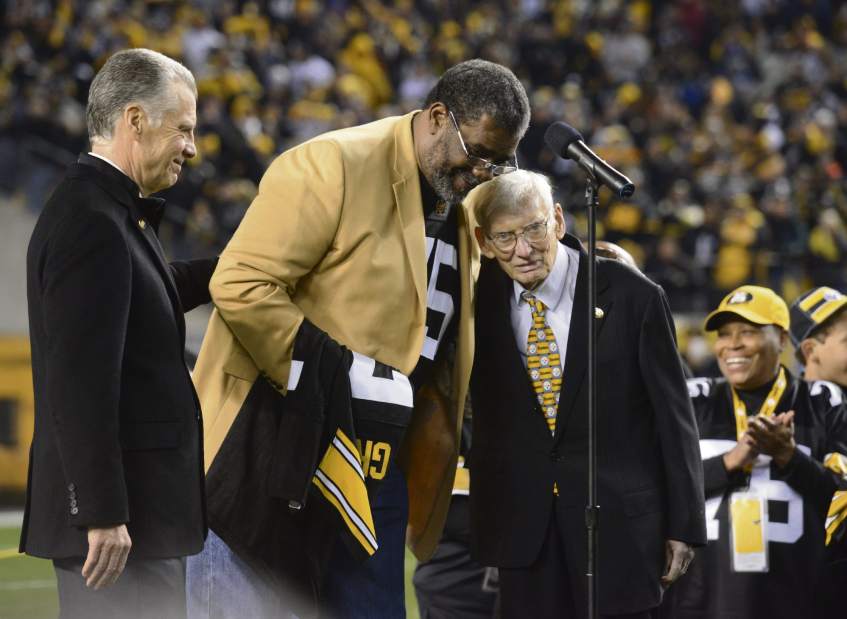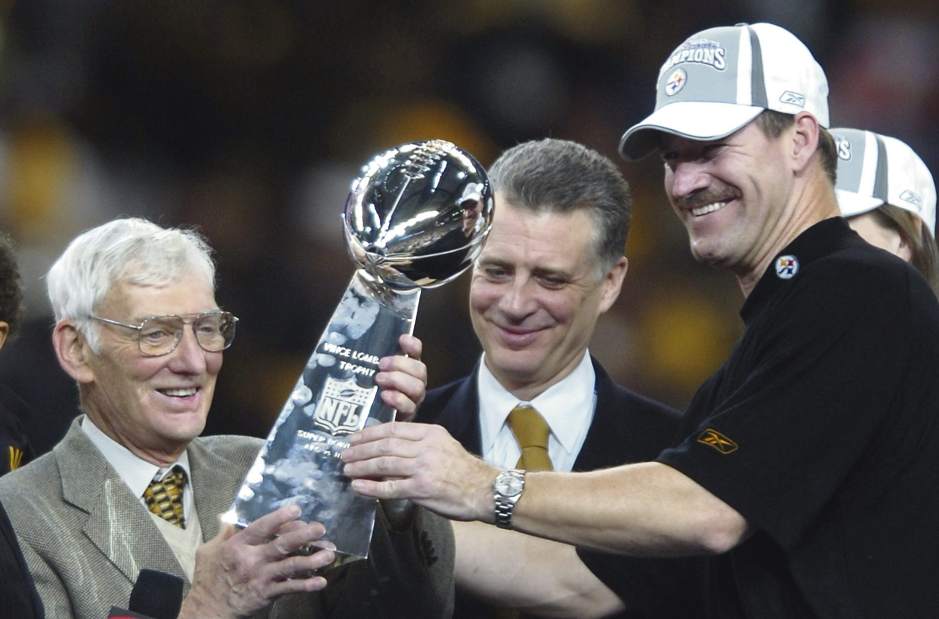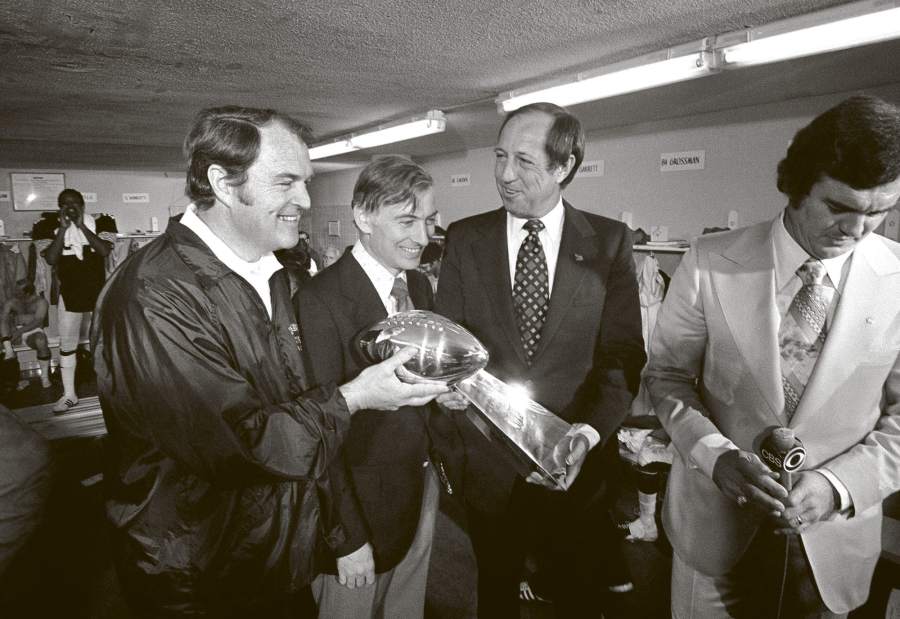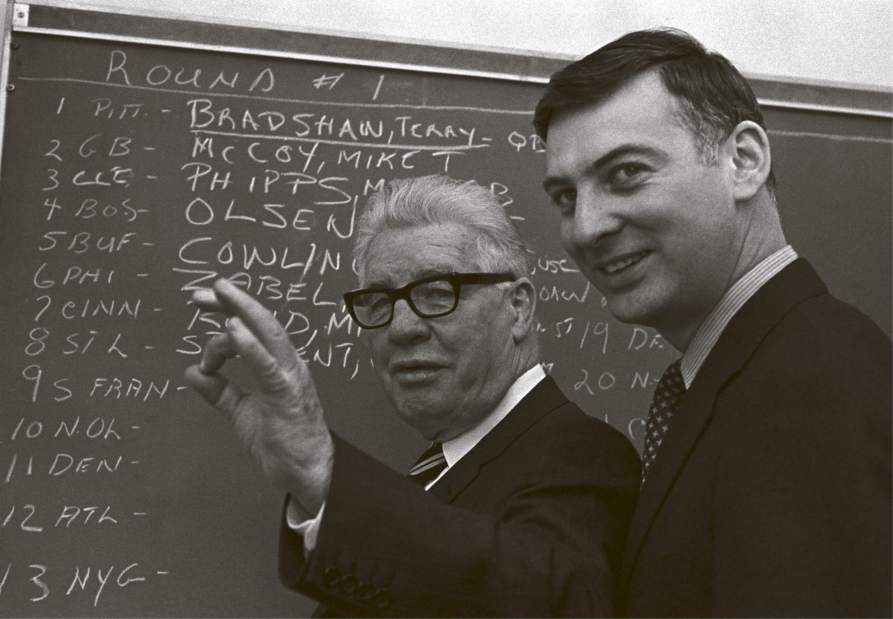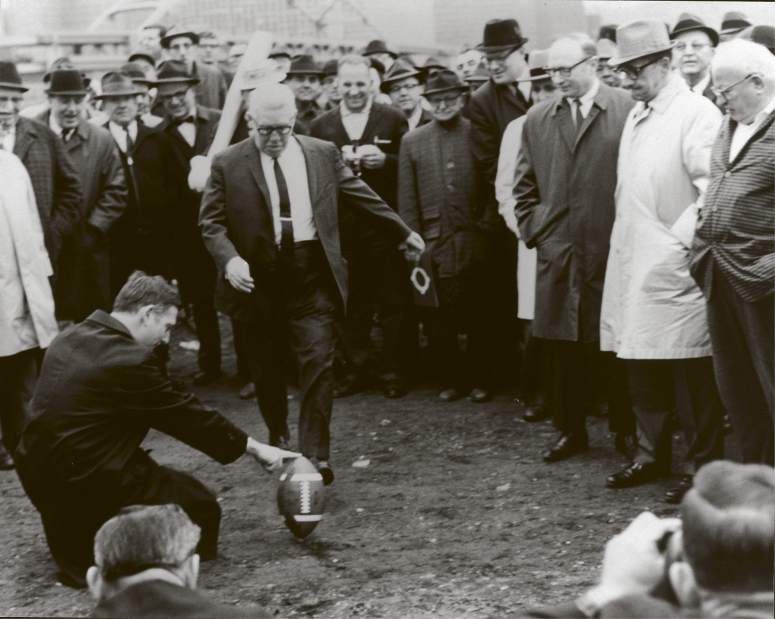Late Dan Rooney lauded by fellow NFL owners as one of league's most important figures
Legend. Pioneer. Icon.
Torchbearer. Role model. Visionary.
Cornerstone of the NFL. Heart and soul of the league.
The best of the best.
Not long after word of Dan Rooney's death broke, his peers across the NFL began releasing statements of remembrance.
Aside from condolences offered to the former Steelers owner's family and those in his organization, the one common theme among the words from other league owners was admiration.
The breadth of other terms used to describe Rooney, who died Thursday at 84, showed the lengths to which he influenced and touched the pro football community.
“Few men have contributed as much to the National Football League as Dan Rooney,” commissioner Roger Goodell said in a statement. “He was one of the finest men in the history of our game.”
In Pittsburgh, Rooney in some ways succeeded his father, Art, as the city's patriarch. But as much as his influence helped shape the Steelers into one of professional sports' model franchises, it was arguably at the league level where Rooney made the greatest impact.
The NFL, barely a blip on the national landscape when Art Rooney Sr. founded the Steelers in 1933, gradually built itself into an all-powerful entity that annually delivered the highest TV ratings of any programming and an $11-billion-a-year megaforce that makes more money than the movie industry.
Dan Rooney was there nearly every step of the way — counting scarce game revenue as a teenager, negotiating player contracts while still in college, ending labor disputes — as the NFL eclipsed baseball, boxing and college football to become America's favorite sport.
“Dan was not only a tremendous owner for the Steelers but also one who focused on what was best for the entire NFL,” Lions owner and chairman Martha Firestone Ford said in a statement. “His many contributions are well documented, and we are a better league because of Dan and his family.”
Rooney called himself the NFL's “last pioneer” because he was the only remaining owner with links to the sport's not-so-glory days when teams paid players $75 a game and a franchise existed in Portsmouth, Ohio.
“I wasn't there in 1920 (when the NFL was founded), but I knew the people who were there,” said Rooney, who was friends with figures such as Wellington Mara, George Preston Marshall, George Halas and Curley Lambeau. “I was able to talk to them and experience them.”
Rooney not only led the Steelers as they transformed under coach Chuck Noll from a one-win team in 1969 to a four-time Super Bowl winner by 1979, he also played a major, league-wide role by helping to end two players strikes, ushering the league into free agency and negotiating once-unthinkable large TV contracts. He also originated the groundbreaking Rooney Rule for minority hiring of coaches and executives.
“He was a great role model of always trying to put the league's interests first,” Patriots owner Robert Kraft said Thursday evening on ESPN.
Kraft, the only other owner to win as many as five Super Bowls, said when he bought the Patriots, he made the Steelers his target to achieve a goal of sustaining that level of winning tradition.
“I feel the success we have had as an organization is directly tied to the lessons I learned from Dan,” Kraft said in a statement.
By the time Rooney turned over control of the day-to-day operations of the Steelers to his son, Art II, in 2003, the NFL long had established itself as America's most-watched entertainment. Super Bowls, TV and the NFL became synonymous partly because Rooney, who helped negotiate the first league-wide TV network contract in 1961, insisted teams share equally in the revenue.
Rooney's influence extended to labor issues. His intervention and conciliation — he was a close friend of longtime players union chief Gene Upshaw — helped end in-season player strikes in 1982 and '87.
Rooney also crafted, then persuaded other owners to accept, an unrestricted free agent system in 1992 that resulted in higher player salaries but led to more than a quarter-century without a game lost to a labor shutdown. During that time frame, Major League Baseball (1994-95), the NHL (1994-95, 2004-05, 2012-13) and NBA (1988-89, 2011-12) went through sometimes-lengthy labor conflicts.
“I don't think any owner had a bigger impact on the modern NFL than Dan,” Green Bay Packers president and CEO Mark Murphy said in a statement.
Rooney pushed for an initiative for minorities to earn more opportunities in high-level coaching and administrative positions. When adopted, the measure became known as the Rooney Rule and was was a point of great pride for him.
“His immeasurable impact on the NFL will forever be recognized, and his legacy, which includes the Rooney Rule, will continue to guide our league,” said Browns owners Jimmy and Dee Haslam, who spent a short time as part of the Steelers ownership group under Rooney.
“Dan Rooney was the conscience of the NFL while serving as one of the powerful influences recently and in the history of the game,” Ravens owner Steve Bisciotti said in a statement.
Cowboys owner Jerry Jones — arguably the NFL's most powerful owner today — released a lengthy statement in which he called the Rooneys “a royal family” of the NFL.
“And Dan more than capably followed in the footsteps of his father,” Jones said.
Perhaps the final 10 words of the 68-word statement released by Jets owner Woody Johnson encapsulated league sentiment best.
“Dan,” Johnson said, “will always be one of professional football's great treasures.”
Chris Adamski is a Tribune-Review staff writer. Reach him at cadamski@tribweb.com or via Twitter @C_AdamskiTrib.



